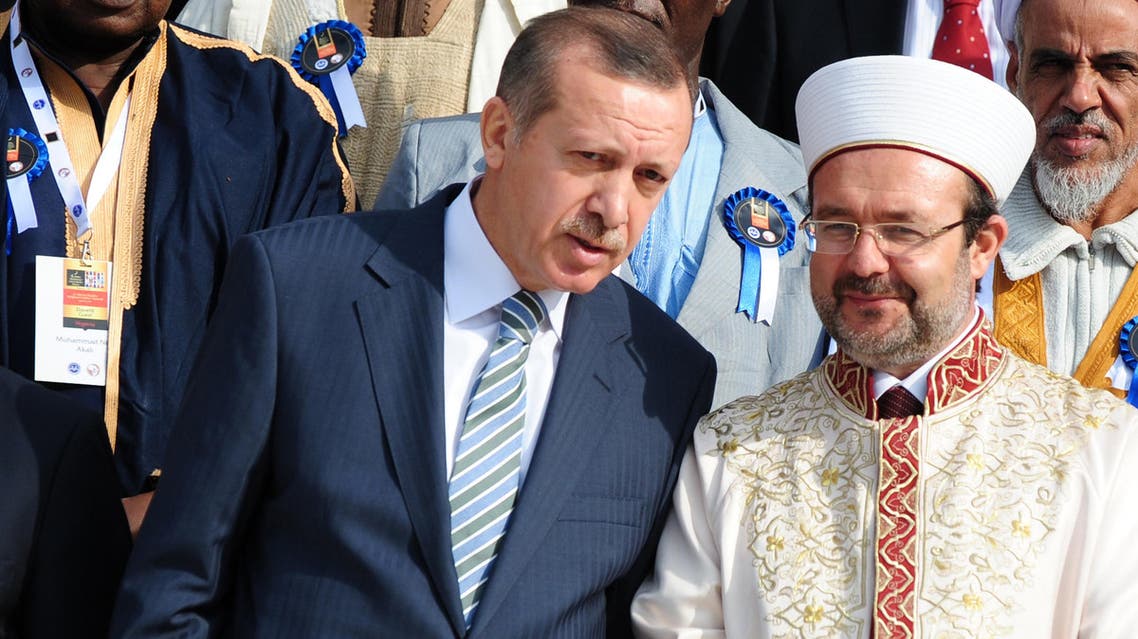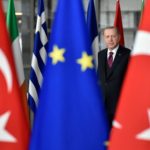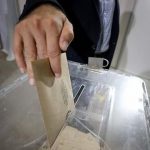The Directorate of Religious Affairs, known simply as Diyanet in Turkey, was established to control religious movements and avoid different kinds of religious formations. It has strived to reinterpret religion and build a modern religious understanding by undertaking a different mission starting from the 1970s. And most recently, Diyanet has turned into a core element of the new regime. Diyanet had to take over the monopoly of making the calls on religion to fulfill this new role.
So, who has the authority to speak on religion in reality? A theologian, who is an expert in the field of fiqh, has recently expressed an objection that seems justified at first glance claiming that “basic knowledge of fiqh methodology” is essential to have a say in religion. However, what should we do if the scholars of fiqh, who actually have the procedural knowledge, do not speak on religious issues or if those in a position to speak are bought off by the regime? As a matter of fact, we should focus on the actual objection itself instead of trying to find answers to such questions.
In today’s world, it is not possible to defend a mentality that argues “It is us if there should be someone to talk about religion, no one but us has the right to speak”. Moreover, this type of mentality does not make any sense. And the situation comes to a boil when something should be specified whether it is haram (illicit) or halal (permissible). Because we often see some people publishing erroneous fatwas (legal ruling) to determine what is haram and halal in religious matters. It means that we will never have a chance to find out the truth as long as the theologians, who actually know the methodology of fiqh, remain silent about these fatwas. Whereas we clearly see that they are silent as well. This is the exact subject that should be criticized; the mentality that states “it is us if there should be someone to talk about religion, no one but us has the right to speak”.
When we find ourselves racking our brains to see how religions have been falsified, the Quran clearly explains to us how the clergymen made haram switch into halal and changed the scriptures. Since they did not agree on the same matter, some of the clergymen changed the holy scriptures by slanting toward the power while the others were afraid and kept silent. Thus, the scriptures were changed. It is easier to understand how they managed to carry out the falsifications with the current process. It is not possible to change religious text today but it is possible to falsify religion through the interpretation of such texts.
The criticism above that was stated in a self-conscious manner clearly revealed what kind of pressure there was on theologians. It must be questioned to our regret if an academician, who is an expert in Islamic law, has to remain silent today despite seeing the mistakes made on fundamental religious issues. The existence of a government claiming to support religious values, the silence of the clergymen against evil and their inability to declare religious provisions even on basic issues such as haram and halal clearly reveal the pressure made on religion by today’s process.
The President of Diyanet recently published a fatwa that will go down in history: “Cryptocurrency is not permissible due to the fact that is unreliable as of now.” As a reason, he drew attention to the possibilities of people deceiving each other and the abuse that may arise through cryptocurrencies. I do not want to get into this subject whether cryptocurrencies are permissible or not. I was uncomfortable with his words “as of now” and his implication that they are actually waiting for the statement of the political will. Presumably, the theologian’s criticism we mentioned above was related to the manner of the roughwrought statement made by the President of Diyanet.
The functionality of Diyanet that is used as a means of intimidating and marginalizing opponents needs to be disputed due to the fact that it cannot act independently on any issue and turned into a completely political institution. Initially, Diyanet was established in order to control religious movements. The regime was both controlling and monitoring the jamaats (religious communities) via Diyanet. Today, it is society itself that is desired to be controlled, not religion. The new regime is trying to control the political manner of the people through the clergy class by transforming the clergymen into a social class.
This is where the conflict starts. The people, who are among the circle of theology and Diyanet that have been institutionalized for religious control, think that they cannot take part in the new project and they voice their unrest albeit in undertones. The theologians, who are well aware of the fact that a very limited number of staff members control everything in the new organization, have started to raise their voices fearing exclusion although they have kept it down to a dull roar out of fear and their own interests. Furthermore, theologians, who have a fable for different jamaats, are also well aware that Diyanet aims to clean up all of the jamaats in the new organization. Theologians, who are presumably uneasy with this new role of Diyanet, are indirectly voicing their criticism. Because, the ignorance of the cadres, who are running Diyanet, on basic religious sciences such as the methodology of fiqh is not a new phenomenon.
The regime has gathered religious groups to itself with the aim of destroying and eliminating a single jamaat with various promises at the beginning and the regime’s limited-staff-favoring mentality and sharing struggle gradually started to be in sight. We even see that the political Islamists feel it beneath themselves to accept the partisan theologists who are convoy joiners and could just produce fatwas on whatever subject they want. We already know thanks to the other examples in different countries that it is impossible for Islamist movements that are built on discrimination in terms of political manners to form long-term alliances.
It would be a blessing to see theologians and religious scholars debate on moral grounds instead of fear for purge and struggle for sharing. And we would do a standing ovation. They would go down in history as the people who preserved the honor of science. Still, we are full of hope that maybe a basis will be formed for political opposition, a real opposition. Universal values and moral principles will be remembered and the duty of being a human will be fulfilled. The theologians will raise a strong voice against oppression and lawlessness. I would like to hope that honorable people will emerge tomorrow, if not today.
By: PROF. AYHAN TEKINES
Source: Poli Turco



